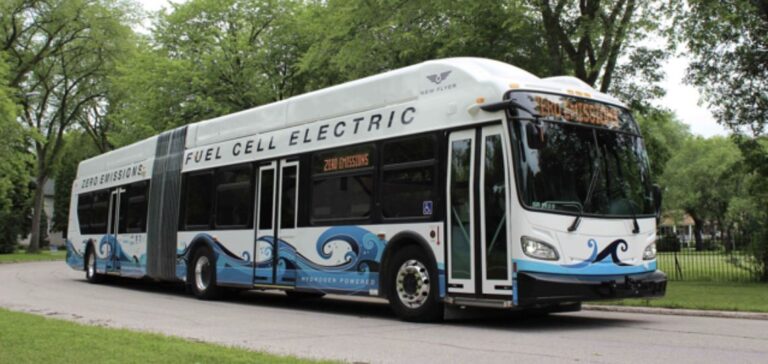In Canada, approximately 60 projects will receive funding under the government’s Clean Fuels Fund (CFF).
A large-scale program
In Canada, Jonathan Wilkinson, Minister of Natural Resources, announced that approximately 60 projects will benefit from the $1.5 billion FRP. These projects represent a first tranche of the top-ranked applications from last year’s call for proposals. In addition, they have a combined total value of over $3.8 billion.
Projects include production facilities, as well as feasibility studies and preliminary engineering and design studies. In addition, they cover seven jurisdictions and five different fuel types. The federal government of Canada is undertaking negotiations to finalize the funding arrangements for each project.
The total federal investment in these projects could reach $800 million. This funding will help project proponents overcome key barriers to the growth of the domestic clean fuels market. In addition, the investment will lay the foundation for the low-carbon fuels of the future.
A second round of projects from last year’s call for proposals is currently under review in Canada. Thus, funding decisions should be finalized in December. Once the successful applicants have been notified, the Department of Natural Resources will begin negotiating the contribution agreements.
A declared ambition
Canada’s clean fuels industry is growing rapidly. This growth is due to the reduction of greenhouse gas emissions and the strengthening of energy security. As such, Canada is striving to position itself as a world leader through investments such as the SBB.
Jonathan Wilkinson also points to a combined investment of over $8.8 million. The investment involves 6 organizations for 10 hydrogen and natural gas refueling stations. For example, Canada aims to accelerate the decarbonization of road transportation.
Canada’s federal funding for these projects comes from the Zero Emission Vehicle Infrastructure Program (ZEVIP). In addition, it incorporates the Electric Vehicle and Alternative Fuels Infrastructure Deployment Program (EVAFIDI). Both programs are provided by Natural Resources Canada.
The Canadian government also supports sustainable employment. The country’s ambition is to become the global supplier of choice for clean energy in a world For example, Jonathan Wilkinson, Minister of Natural Resources, says:
“The significant investments announced today will strengthen Canada’s competitiveness in clean fuels at a time of increasing global demand. These projects are helping to create sustainable jobs and grow the economy, while reducing emissions and protecting the environment.”
Funding for local projects
Launched in June 2021, the SBF aims to invest $1.5 billion to increase the production of clean fuels in Canada. It focuses on hydrogen, renewable diesel and natural gas, and cellulosic ethanol. In addition, it incorporates synthetic fuels and sustainable jet fuel.
The call for proposals provides funding through conditionally repayable contribution agreements. The reimbursement can be up to 30% of total eligible project costs to a maximum of $150 million per production project. In addition, it can reach up to $5 million for feasibility studies.
Funding under ZEVIP and EVAFIDI includes $3 million to HTEC. The funding is to secure the installation of three hydrogen fueling stations. All three sites are located in British Columbia.
More than $2.2 million will help FortisBC Energy build three natural gas refuelling stations. All three stations are also located in British Columbia. The stations will be located in the cities of Delta, Kelowna and Abbotsford
A decarbonization objective
1 million will help the University of British Columbia install a hydrogen fuelling station in Vancouver. In addition, $1 million will go to Carlsun Energy Solutions to build a hydrogen station in Ontario. Finally, $1 million will go to Tomlinson Environmental Services for the installation of a natural gas refuelling station in Ottawa.
In addition, $647,000 will go to Vermilion River County. The funding will be used to build a natural gas refuelling station in Alberta. The station will be located in the city of Kitscoty.
Transportation accounts for 25% of total greenhouse gas emissions in Canada. The adoption of zero-emission vehicles is an important part of the Emissions Reduction Plan. In addition, Canada’s plan amounts to $9.1 billion.
The plan aims to meet the Paris Agreement target for 2030. It will also put Canada on a path to net zero emissions by 2050. To date, more than 150,000 Canadians and businesses are taking advantage of the federal incentive to purchase a zero-emission vehicle.






















